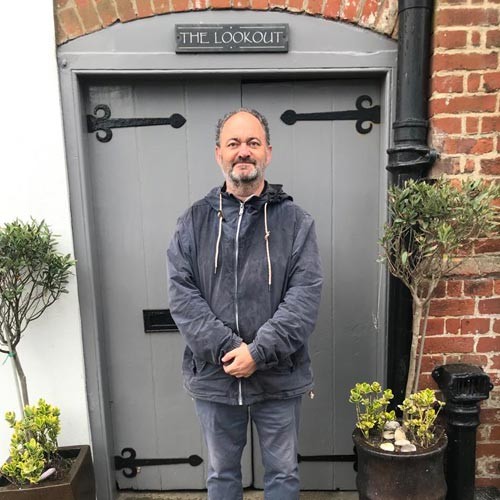Source talks to Laurine van Rooijen from Van Gogh Museum Enterprises and Licensing Link Europe’s Ian Wickham about how the artist is being brought to life through licensing.
Over the past few years, museums and heritage institutions have emerged as a significant and growing category within the licensing space. The rich vein of material they provide to licensees, collaborators and retailers is both inspirational and emotive. The well-known masterpieces they house within their respective walls draw thousands upon thousands of visitors every year, meaning the appetite for consumer products is vast.
For the Van Gogh Museum – which welcomed over 2.1 million visitors from 108 countries in 2019 – its burgeoning licensing programme is led by its mission statement: to make the life and work of the artist as accessible to as many people as possible, enriching and inspiring their lives.
This has been highlighted by a variety of clever collaborations inspired by famous artworks such as Almond Blossom and Sunflowers, as well as a solid consumer products programme across categories including stationery, storage, accessories, wall art and fashion among others.
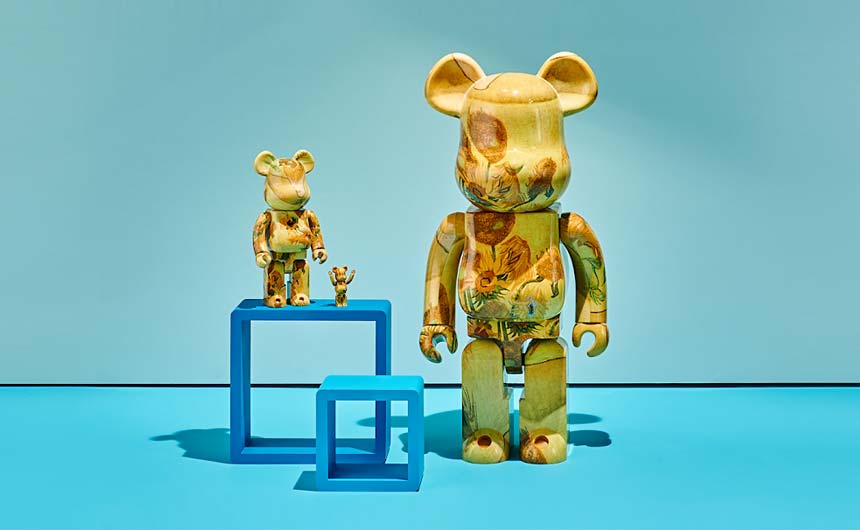
Recently launched collaborations include fashion brand The Daily Paper and designer toy bears from Japanese company Be@rbrick. The Museum’s collaboration with The Skateroom, meanwhile, is nominated for the Inspired Innovation Brand Licensed Product or Range Award at this year’s Brand & Lifestyle Licensing Awards, while its footwear range with Vans was nominated in 2019 for the Best Brand Licensed Adult Apparel Product or Range.
In addition, a special Monopoly x Van Gogh Museum edition sees players learning about the struggles and decisions Vincent made as an artist and where he painted his masterpieces.
Laurine van Rooijen, head of licensing and wholesale at Van Gogh Museum Enterprises, explains: “Collaborating is something we do wholeheartedly and we really aim to include a provenance angle about Vincent when we build our programmes with our partners. Each collaboration showcases an angle of Vincent’s story, one that we would like to highlight among our target group. We want the consumer to understand the man as well as immerse themselves in his art, which is why we work hard on carefully selecting our partners to participate in our licensing programme.”
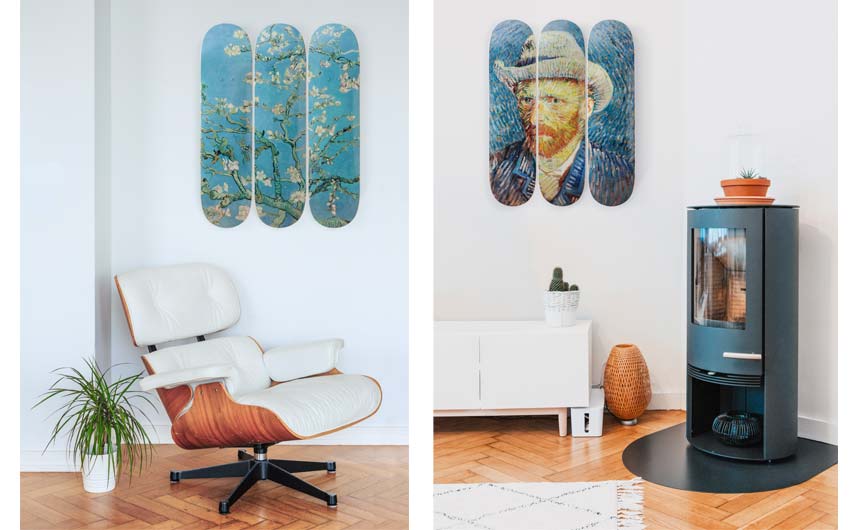
The appeal of Van Gogh to partners is often displayed through the collaborations, Laurine continues. “With Samsonite, it was the fact that Vincent was quite the traveller himself and with Daily Paper it was that Vincent was self taught and kept on going despite several failures, just as the founders of the DP brand.
“Above all, Vincent was very human, with his struggles and relationships. People can really relate to him because of that and can look at his art with a clearer understanding of what he was trying to achieve.”
For Ian Wickham, director of Licensing Link Europe – which handles the consumer products programme for Van Gogh Museum in the UK and Ireland – Vincent’s work provides licensees and retailers with huge scope.
“We are in an enviable position where we have the opportunity to use the works of Vincent van Gogh as inspiration to create some beautifully designed products,” he offers. “The Museum has commissioned the most amazing style guides – style books really – that highlight just how far the paintings, sketches and letters can be treated. This is about giving licensees some real freedom to use the art in ways that work for design-led categories, but that then reference which works they took their inspiration from.
“For retailers, there is the opportunity to sell product ranges, collections and collaborations that are far less risky in market than perhaps backing the latest movie or TV launch. Vincent’s popularity has not waned – he is very relevant (especially with subjects such as mindfulness, wellbeing and mental health being top of mind) and his artwork is timeless and known the world over.”
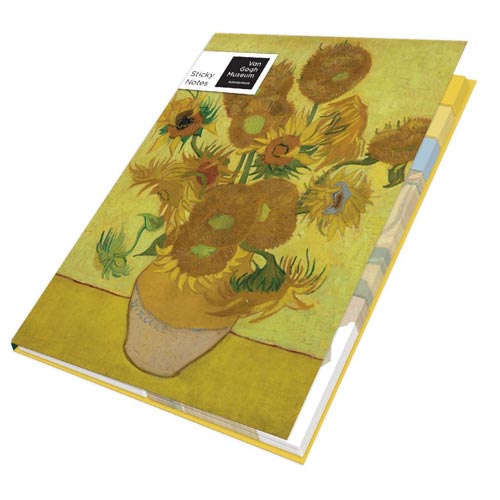
Key deals secured by Licensing Link Europe include Blueprint Collections (stationery, storage, bags and gifts), Signare (tapestry handbags), Ecoffee Cup (reusable cups), Bespoke 77 Innovations (ceramics and homewares) and the Wooden Postcard Company (wooden magnets, postcards and wall art). In terms of fashion, there is currently a successful line of items being sold on ASOS.
Further opportunities are being discussed within apparel, while fashion accessories, core home categories and kitchenware are also important to the plan.
While it continued to engage with fans online during its temporary closure due to the COVID-19 pandemic, the doors to the Museum itself are now open again (with social distancing measures in place).
So, what do potential partners need to know about working with the Museum? Laurine has these words of advice: “We are looking for those who are prepared to push the boundaries and are prepared to look at the assets we have with a creative mind. Experiment and be bold.”
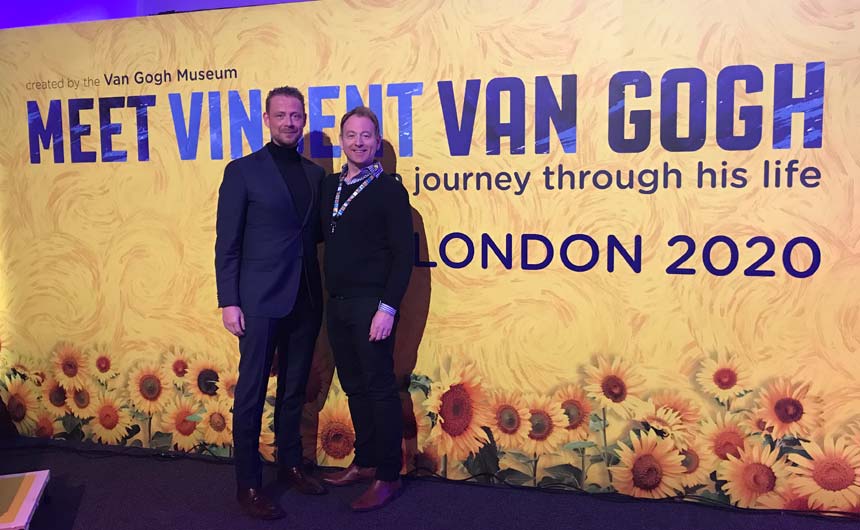
Meeting Vincent
Meet Vincent Van Gogh opened on London’s Southbank in February and was the second display on European soil for the immersive exhibition, following on from Seoul and Barcelona.
Up to when it had to unfortunately close due to the restrictions imposed by the pandemic in March (it had been due to run until May 21), some 50,000 tickets had been sold and early signs were that it would match the success enjoyed in the first two cities.
A partnership with ProAktiv and Goldentours, it saw Vincent step outside of the Museum’s walls with visitors taken on a live journey with the artist. The narration of the exhibition was based on Vincent’s letters which are part of the Museum’s collection.
Speaking to Source at the launch, Arnold van de Water, general manager of the Meet Vincent Van Gogh Experience, explained that the project was another way of “inspiring and enriching” as many people around the world by the work and life of Vincent. “We stepped out of the museum walls and tried to create a project that is really for novice to experts, especially centred around families,” he said. “It is not your typical museum visit; the whole experience has been set up in six scenes which take you round on a live journey of Vincent, and hopefully at the end you came as close to the man as possible. Basically in every scene your senses are being triggered.”
Arnold continued: “The Museum does amazing work; it safeguards the collection. This exhibition helps make the collection accessible in a modern way, especially for younger generations who are inspired and interested in arts and culture, but they maybe consume it in a different way to older generations such as their parents. These kind of initiatives are the driver behind innovation. Vincent was relatively old when he started becoming an artist and he picked his dream up at a later age and became the genius we know now today. I think if someone is stepping in [to the exhibition] – no matter what age he or she is – and steps out and follows their dream, I think then we have achieved something.”
There are plans for the experience to return to London next year to complete its residency.

















